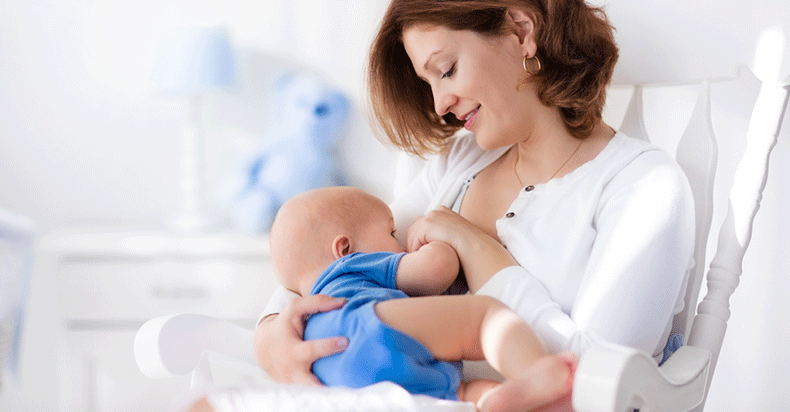How To Do Newborn Baby Care 1st Month

Last updated on December 12th, 2024 at 04:58 pm
Newborn babies are not piece of cake for every other person, as they need something extra’ to stay calm, healthy, and comfortable. Navigating the first month of newborn care can feel like both a joyful and daunting journey.
Having gone through this experience myself, I understand the whirlwind of emotions and challenges. During those initial weeks, the key to managing newborn care involves establishing a calming routine and recognizing the signs that your baby needs comfort or nourishment. Whether you’re breastfeeding or using formula, maintaining a consistent schedule will help both you and your baby feel more secure.
How to do Newborn baby care 1st month at home can be overwhelming and sometimes stressful for the new parents.
Start with the basics Newborn baby care 1st month
A gentle bath routine can be a soothing ritual for your newborn. I usually recommend using lukewarm water and a mild, fragrance-free baby soap. This not only helps in maintaining hygiene but also provides a bonding experience that can be soothing for the baby.
For diapering, it’s crucial to check and change diapers frequently to ensure comfort and prevent rashes, which can be done by selecting suitable, gentle wipes and creams.
These fundamentals, including understanding crying patterns and how to calm your baby, become second nature with time. Throughout this month, attention to your baby’s cues and following intuition will guide you through this new and rewarding phase of life. If you’re interested in more detailed advice on milestones and guidelines for caring for a one-month-old, the 1-Month-Old Newborn Baby Milestones Guide can be a useful resource.
Tips on bathing a newborn baby
By using our expert advice along with some common sense logic – it should be pretty easy for you to get off on the right foot when taking care of a newborn baby alone under one month old!
The commonly asked question is how often should you bathe your baby? Well AAP (American Association Of Pediatrics recommends you should bathe your baby 3 times a week during their first year of life. There’s no need for a daily bath as the moisture of the baby’s fragile skin goes away leading to skin problems.
Here are some essential points that need to be noticed when you’re giving the first bath to your newborn at home.
Room temperature and water should be warm nicely.
For new parents, it is quite daunting how to hold the baby when giving a bath to your newborn. The two-person rule is substantially better if you’re giving a bath to your newborn for the first time.
All these things should be set ready beside you in your reach before bath to avoid the hassle.
When to bath a newborn for the first time
AAP suggests newborns should take their first bath after 24 hours of birth. newborns need extra warmth soon after birth. They are prone to alter their body temperature so quickly as the surroundings get warm or cold.
For this reason, giving a bath to a newborn soon after birth is not the right approach at all. Babies develop hypothermia in the instance of an eye blink. A recent study showed that 66.8% of neonatal hypothermia is seen both in hospitals and out of the hospitals.
So as per experts’ opinion wait for 24 hours for the first bath of your newborn.
Chord care under 1st week of a newborn baby
Chord care is an important thing to do after coming home from the hospital with your little one, chord stamp is fresh if you are being discharged soon after delivery so put special attention to it.
Make sure to keep the stump outside from the diaper. Clean the area around the chord and the stump with the sterile solution.
Give a sponge bath until the umbilical cord stump gets dry and falls off.
Breastfeeding Tips Newborn

UNICEF emphasizes that we can reduce morbidity and malnutrition through breastfeeding significantly around the globe.
In order to support breastfeeding, we’re always focused on creating awareness among the mothers of the right tips and techniques.
What type of feeding routine will be best for them at this age? Newborn babies need to be fed every TWO hours or so for the first month, it’s best. As the baby starts growing which is so rapid in the first quarter the frequency altered.
Ten minutes of feeding on each side of the breast.
Stay calm, positive, and happy it would directly affect your baby’s adequate feeding. when you’re irritating for any reason your child would be cranky and won’t get fed properly.
Take care of your personal hygiene, change cloth, and taking bath. Newborns have all five senses babies also don’t like stinking.
If you’re a working mom before going back to the work spend maximum time close to the baby in addition to carrying him around as much as possible during awake periods brings a positive role in breastfeeding.
MotherFeeding can take up an enormous amount of time due to how often they have needs – like hunger – that must be met accordingly; this leaves mothers feeling exhausted quickly given their erratic sleep schedules! – usually, experts recommended breastfeeding duration is ten minutes of feeding to each breast. Plus it is a skill that you and your baby gradually learn. Hence wait and be patient.
Babies also get benefits from being carried around (even while sleeping) because It helps them grow into big-headed adults by supporting head growth. If not held enough early on infants may experience slower motor skill development.
I just wanted to let you know that there are some things I’ve learned from my experience of being a new mother. You might want to consider these strategies for newborn baby care under a one-month feeding plan!
Breastfeeding Vs formula feed?
First, if your breast milk is coming in and flowing well enough, then it’s best not to supplement with any formula whatsoever because this will disrupt breastfeeding patterns later on when they’re older.
Second, make sure that no matter what time mom feeds her child during the day or night she always does so consistently as possible. whether by bottle or nursing – at least every 3 hours while awake (unless otherwise advised). The last thing you need is an unsettled little human who can’t sleep anywhere but their crib!
A newborn baby’s care needs are different for every individual. Some mothers find that breastfeeding is best, while others need to use formula. For those who do choose to breastfeed their child after birth,
How do I get my newborn baby on a sleep schedule?


We’ll cover everything from how much sleep they’re getting each day, It’s so easy! All you have to do is set up an environment conducive to a good night of rest.
Try putting them in the crib when they are tired and swaddled, rocking gently back and forth until their eyelids close–then put your hand under their chin if it doesn’t work out right away.
This will help keep the pacifier or bottle out of reach as well since that can be disruptive to some babies’ sleeping habits. If after 10 minutes this has not worked try again at another time with less lightning present (I’m sure mommy knows how much she needs!)
Good luck getting settled into that dark hours-you’ll need them How to get your baby on a sleep schedule
What are some things you can do to get your baby on a sleep schedule?
Your newborn child needs to have adequate rest because their brain will develop faster when doing this and so that they can learn better through developing neural pathways as well!
How would you like it if someone woke up screaming every hour of the night and refused to go back down for naps or bedtime? It’s not just frustrating, but tiring too!
You deserve better. I’m here with 5 tips that will help train your little one into sleeping through the night:
There is a lot of research on how to get your baby on the sleep schedule, but there are many different opinions.
My favorite advice I found was that you should start with one nap at night and then gradually phase in another nap until they’re taking all three naps during the day.
What are some of the challenges new parents face?
How to care for your fussy newborn baby Babies can be very fragile and they cry all the time. It is stressful for new parents who
You’re never alone when you have a little one, but what are some things new parents should know about caring for their cranky babies? There’s no magic remedy that will work every time, but there are ways to help soothe the fussiest of infants. One thing is not working: patience!
It might feel like it takes forever and all day long until they finally fall asleep at night or stop crying in public during the daytime because something happened while out on an errand –
Who knew mommy’s brain could be this difficult?! Take heart though–most experts agree that most children start sleeping through the night (six hours) by 3-4 months old. So even if 2 weeks feels
Oh, how fussy your baby must be! I’ll tell you what. You might want to try these things first before giving up on getting some sleep:
How to keep baby happy and healthy until he or she reaches one
You are a new mom! Congratulations on your first month and congratulations to the baby for their first week. Now that you’ve made it through the most trying time of parenting (the newborn stage) what should be some things you know about keeping babies happy until they reach one?
Well, there is an old saying: “spoil them rotten while they’re little.” And who doesn’t want more joy in this world?! So here’s how to spoil those loving bundles without having regrets when he or she starts walking around with sticky fingers…
If you’re lucky enough to get some time off from work after your baby is born, you’ll need to find someone to take care of them while you’re gone. And if not, then it’s up to you! So how do you make sure that your newborn stays happy and healthy?
What are some ways to keep your newborn baby happy and healthy?
Learn the feeding schedule of babies based on their age group (infant
What not to do when caring for a newborn

Consistency is key – set up a routine for your baby and stick to it
Conclusive note:
Congratulations on the newest addition to your family.
A newborn baby is a lot of work. It can be hard to know where to start and your new responsibilities as a parent, but we’ve outlined everything you need to take care of in this blog post! From feeding schedules, bathing techniques, and diaper change tips-we cover it all here.
If you have any questions about anything else related to taking care of an infant under one month old or would like expert advice on any other topic related to raising children please feel free to contact us anytime for help with parenting issues WE understand how challenging parenthood can be.






